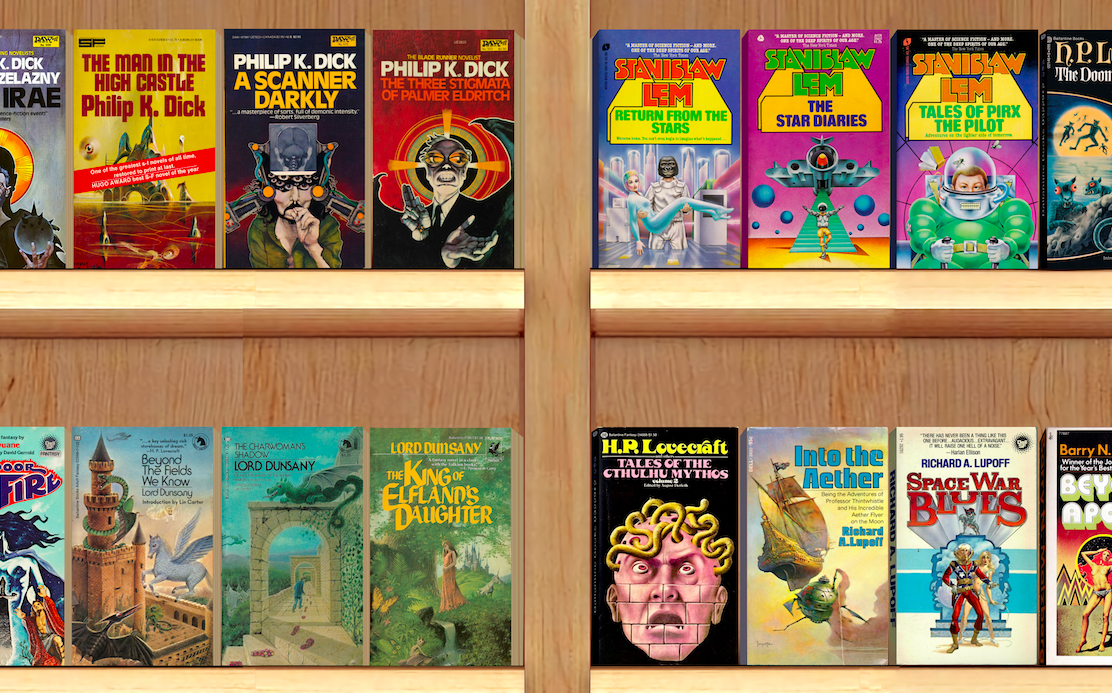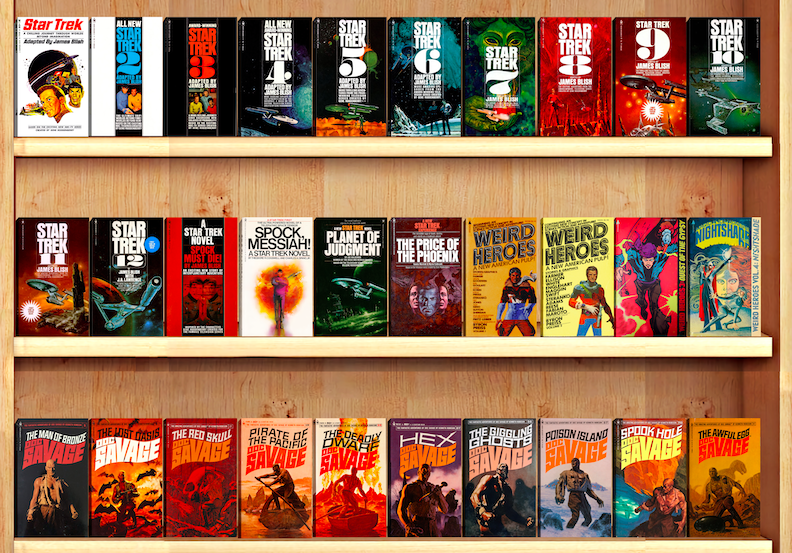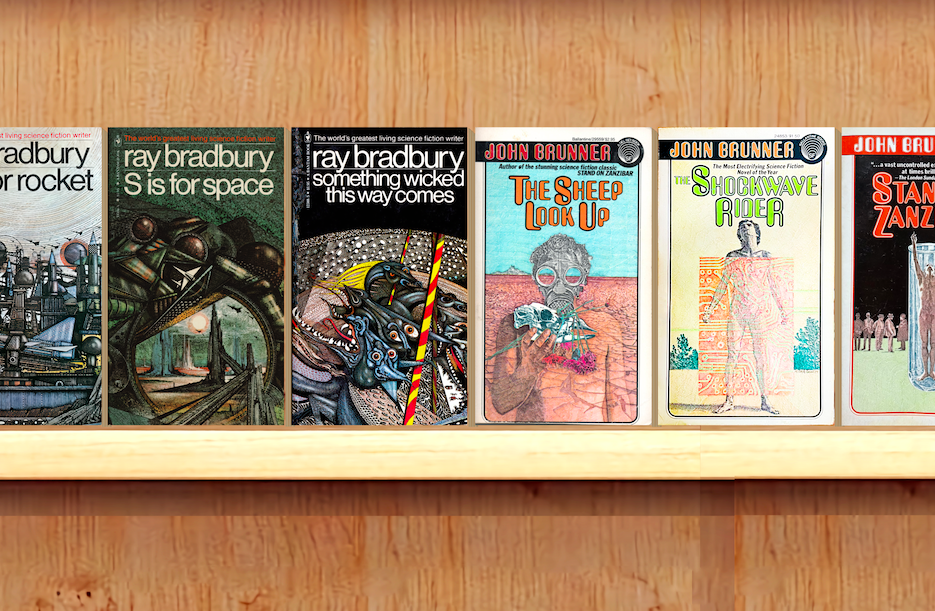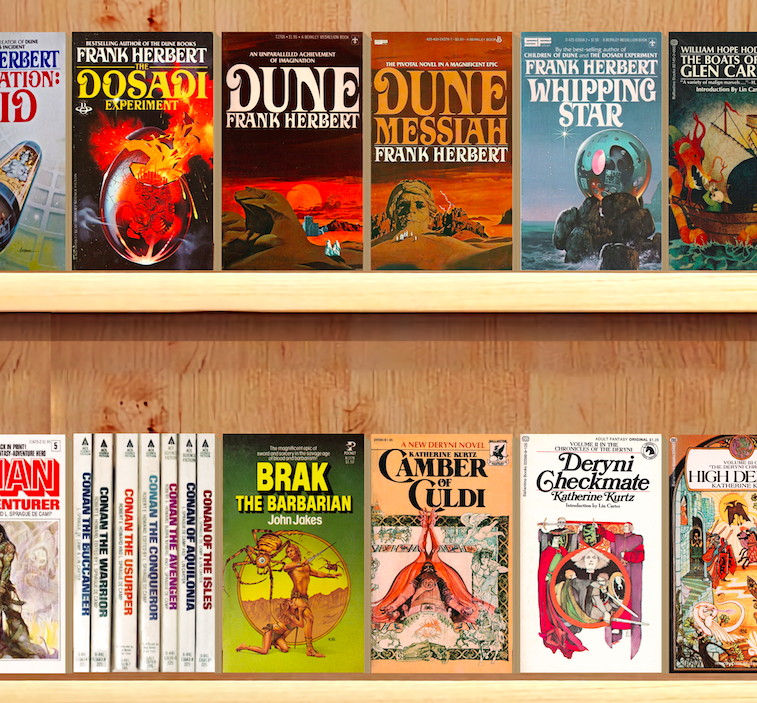Michael Chabon was born in 1963, which placed him well to be influenced by the unpredictable, indiscriminate, and often lurid cultural cross-currents of the nineteen-seventies. He seemed to have received much of that influence at Page One, the local bookstore in his hometown of Columbia, Maryland — and it was to Page One that his imagination drifted during the long days of the COVID-19 pandemic spent in his personal library. “As I sat around communing with my tattered old friends,” he writes, “I discovered that I retained a sharp recollection — title, author, cover design — of what felt like every single book that had ever appeared on those tall shelves along the left wall of Page One, toward the back, between 1972 and 1980.”

That was the store’s “Science Fiction & Fantasy” section, which in that period was well-stocked with titles by such stars of those genres as Ray Bradbury, Ursula K. LeGuin, Arthur C. Clarke, J. G. Ballard, C. J. Cherryh, Michael Moorcock, and Philip K. Dick.
Or at least it did if Chabon’s digital re-creation “The Shelves of Time” is anything to go by. Downloadable here in “small” (96 MB), “large” (283 MB) and “very large” (950 MB) formats, the lavish image functions as what Chabon calls a “time telescope,” offering “a look back at the visuals that embodied and accompanied my early aspirations as a writer, and at the mass-market splendor of paperback sf and fantasy in those days.”

“I’m the same age as Chabon, and I was also a bookstore rat, staring at these exact same covers and agonizing over which one I’d lay down my $1.25 for,” writes Ruben Bolling at Boing Boing. “Just look at those beautiful John Carter of Mars covers. I collected and cherished these, and the Tarzan series.” Bolling also highlights the adaptations Chabon includes on these re-imagined shelves: there’s “the James Blish Star Trek series, just as I remember it,” and also the novelization of Star Wars, which he read before the opening of the film itself. “So instead of experiencing the movie as it should have been — as campy movie fun — I experienced it as an adaptation of a literary work.”

Despite being a couple of decades younger, I, too, remember these covers vividly. My own sci-fi-and-fantasy period occurred in the late nineties, by which time these very same mass-market paperbacks from the seventies were turning up in quantity at used bookstores. For me, few images from these genres of that era could trigger reading memories as rich as those Ballantine covers of The Sheep Look Up, The Shockwave Rider, and Stand on Zanzibar by John Brunner, a British specialist in social and environmental catastrophe. Like many readers, I put this sort of thing aside after a few years, but Chabon has proven infinitely more dedicated: half a century after his days haunting Page One, his mission to “drag the decaying corpse of genre fiction out of the shallow grave where writers of serious literature abandoned it,” as critic Ruth Franklin once described it, continues apace.
via Boing Boing
Related content:
The Art of Sci-Fi Book Covers: From the Fantastical 1920s to the Psychedelic 1960s & Beyond
Novelist Michael Chabon Sang in a Punk Band During the ’80s: Newly Released Audio Gives Proof
600+ Covers of Philip K. Dick Novels from Around the World: Greece, Japan, Poland & Beyond
The Amazing Adventures of Kavalier and Clay: Animation Concepts
The Encyclopedia of Science Fiction: 17,500 Entries on All Things Sci-Fi Are Now Free Online
Based in Seoul, Colin Marshall writes and broadcasts on cities, language, and culture. His projects include the Substack newsletter Books on Cities, the book The Stateless City: a Walk through 21st-Century Los Angeles and the video series The City in Cinema. Follow him on Twitter at @colinmarshall or on Facebook.



